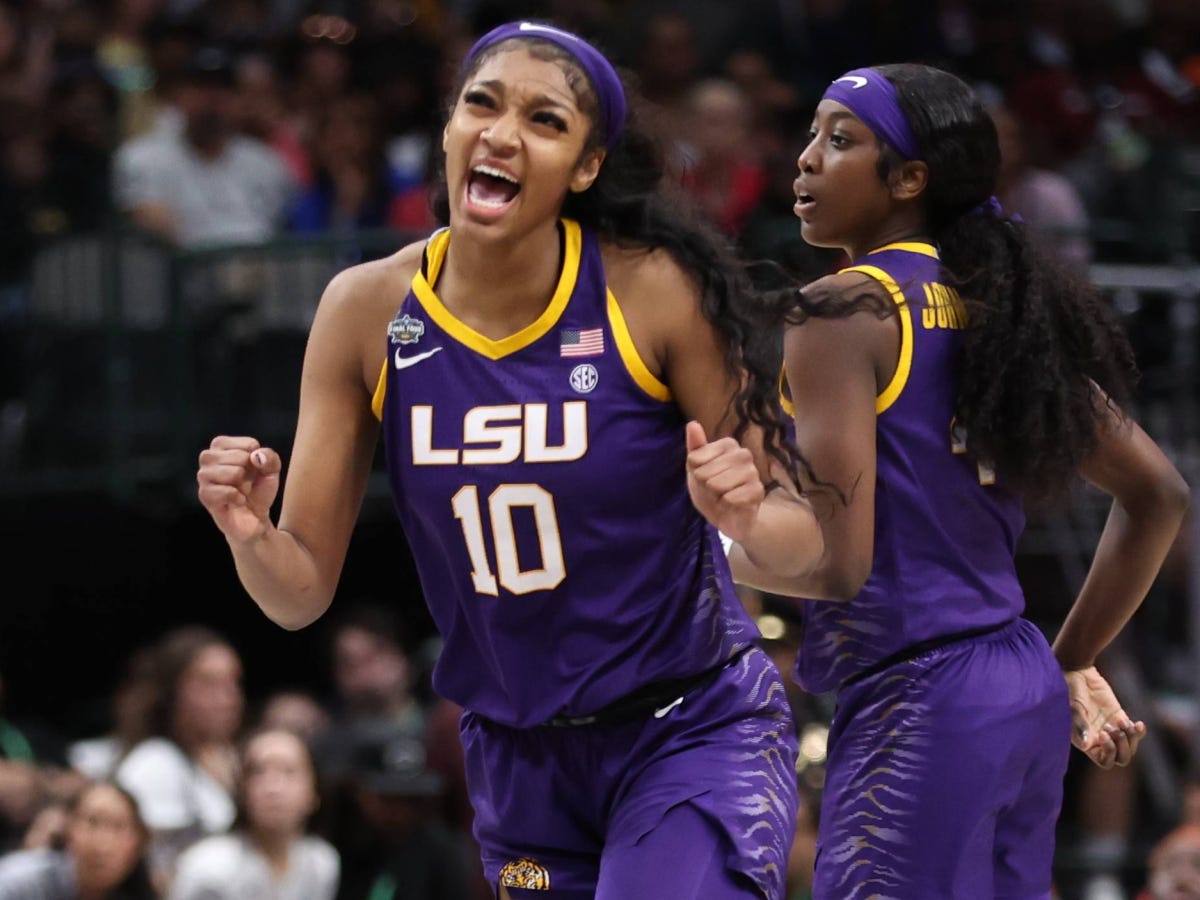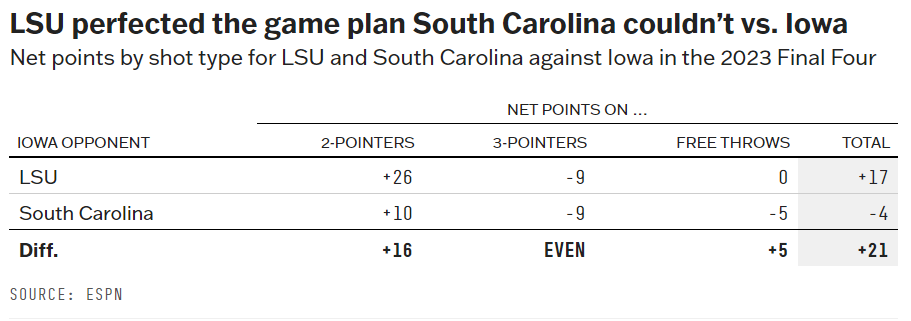How LSU Played The Game vs. Iowa That South Carolina Couldn't
It took a perfect game to take down Caitlin Clark and Iowa.
There were many impressive things about LSU’s victory over Iowa in the women’s NCAA Tournament championship game Sunday — from the Tigers’ first basketball title in school history to Kim Mulkey’s turnaround of the program within two years of arriving in Baton Rouge, and forward Angel Reese’s ascendance to first-team All-America status immediately after transferring from Maryland. But maybe the most incredible part of LSU’s triumph was how thoroughly it was able to play its game against Iowa in a way that previously undefeated No. 1 South Carolina couldn’t in its semifinal loss to Caitlin Clark and the Hawkeyes Friday night.
Against the seemingly unbeatable Gamecocks, Clark scored 41 points (on a scorching .606 true shooting percentage) and added eight assists as the Hawkeyes produced a 106.9 offensive rating — the second-highest South Carolina had allowed all season. Iowa’s defense also forced South Carolina into one of its worst offensive ratings of the year (101.4), mitigating the Gamecocks’ fearsome advantage inside and on the glass by holding them to just 7-for-33 shooting outside of the paint (including 4-for-20 on 3-pointers). Despite a massive edge in second-chance points (24 to 8), South Carolina’s plus-10 advantage on 2-pointers couldn’t overcome its minus-14 deficit on threes and free throws in the four-point loss.
LSU vowed to not let Iowa get away with the same game plan in the national title game — and the Tigers made good on that promise. Just like South Carolina, they outrebounded the Hawkeyes, doubling them up on the offensive glass, and won the battle for points in the paint. But the Tigers also scored 20 points off of 2-pointers not in the paint, and went 11-for-17 (65 percent) on threes for good measure. And between LSU’s offensive rebounding and its defense forcing 16 Iowa turnovers, the Tigers shot 14 more times from the floor than the Hawkeyes did, which helped compound their advantage in field goal percentage (54.3 percent versus 50.0).
The Tigers also slowed down Clark just enough from her usual output this tournament. While the Hawkeyes’ brilliant star had a strong game (30 points on a .615 TS%, eight assists), her usage rate and assist rate were both down from their absurd highs in the South Carolina game, and she was held to just one basket from inside the arc after making 10 against the Gamecocks.
In the end, this all helped LSU run up a massive plus-26-point edge over Iowa on 2-pointers and hold even on free throws, making the Hawkeyes’ 9-point advantage on threes moot. It turned what could have been a close game into a blowout, then eventually a coronation for both Mulkey — who became the first women’s coach to lead two separate schools to titles — and Reese — who was one of five Tigers to score in double figures while her team’s 102 points set the all-time record for a championship game.
None of this was easy to see coming for a team that went 9-13 a few years ago and who even entered this year’s tourney with only a 3 percent chance of cutting down the nets in Dallas. For one thing, it was hard to envision South Carolina ever losing to anybody; as part of its undefeated regular season, Dawn Staley’s team had beaten LSU by 24 points in mid-February. But the Tigers’ title bid gained steam as the tournament went on, and they ultimately had an answer for Clark and the giant-killing Hawkeyes that the Gamecocks didn’t.
Filed under: College basketball






